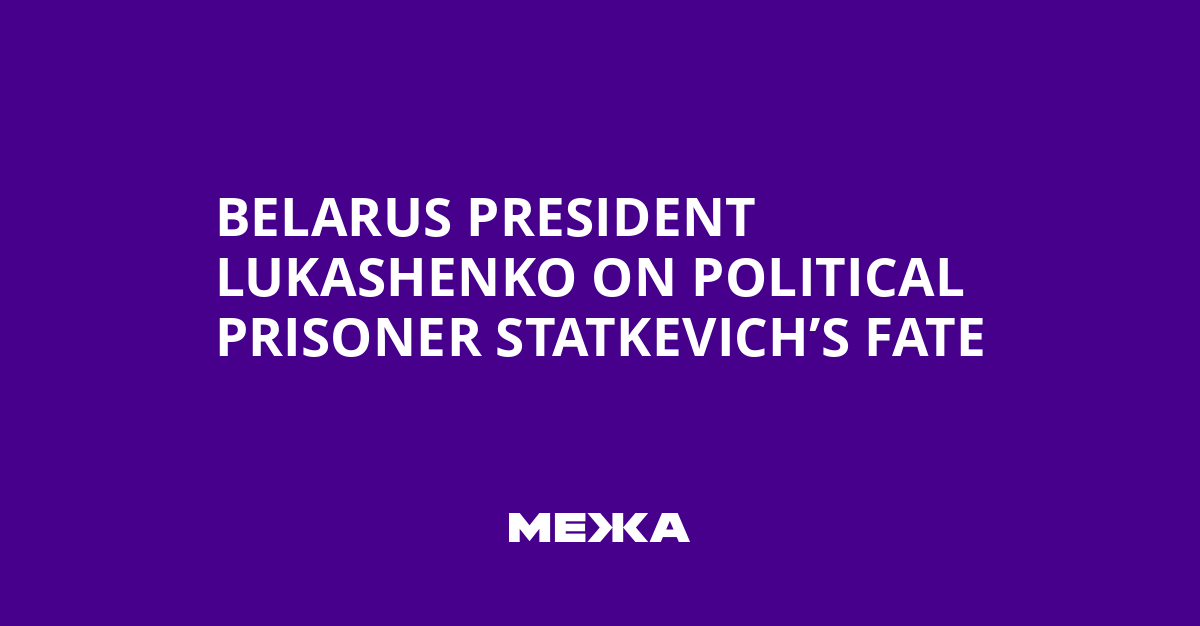During a meeting with the Belarusian state media community, President Alexander Lukashenko voiced his assessment of the fate of political prisoner Mykola Statkevych. According to the state agency “Pool of the First,” Statkevych allegedly decided to remain in Belarus and approached Lithuanian border guards with a request to consider the possibility of staying in the region, having warned him about the risk of imprisonment upon returning to Belarus. According to Lukashenko, Statkevych replied that he was ready to go to prison, after which he was returned to Belarus. The exact whereabouts of the activist at the moment have not been specified.
The background to the incident dates back to September 11, when, after a visit to Minsk by John Koula, the deputy special representative of the U.S. president, Kit Kellogg, the authorities released and expelled to Lithuania 52 political prisoners, including 14 foreign nationals. Among those released were citizens of Lithuania, Latvia, Poland, Germany, France, and the United Kingdom.
Among the released opposition figures, Mykola Statkevych was singled out, who refused to leave the country. The wife of the released politician said she had no information about her husband’s whereabouts.
Context and possible implications for the Belarusian political scene
In the framework of this story, we are dealing with sensitive decisions that individual political prisoners make regarding staying in the country or departing abroad. Official statements indicate the personal nature of such decisions and the lack of political coordination by the state regarding specific cases. Analysis emphasizes that the events surrounding the release and internal political decisions continue to influence international expectations regarding human rights and political freedoms in the country.
Overall, the story of Statkevych and the associated events supports the discourse about how relations between the authorities, the opposition, and international partners are evolving in Belarus. At the same time, the official stance aims to focus on the personal character of each case and to avoid broad politicization of political prisoners.
